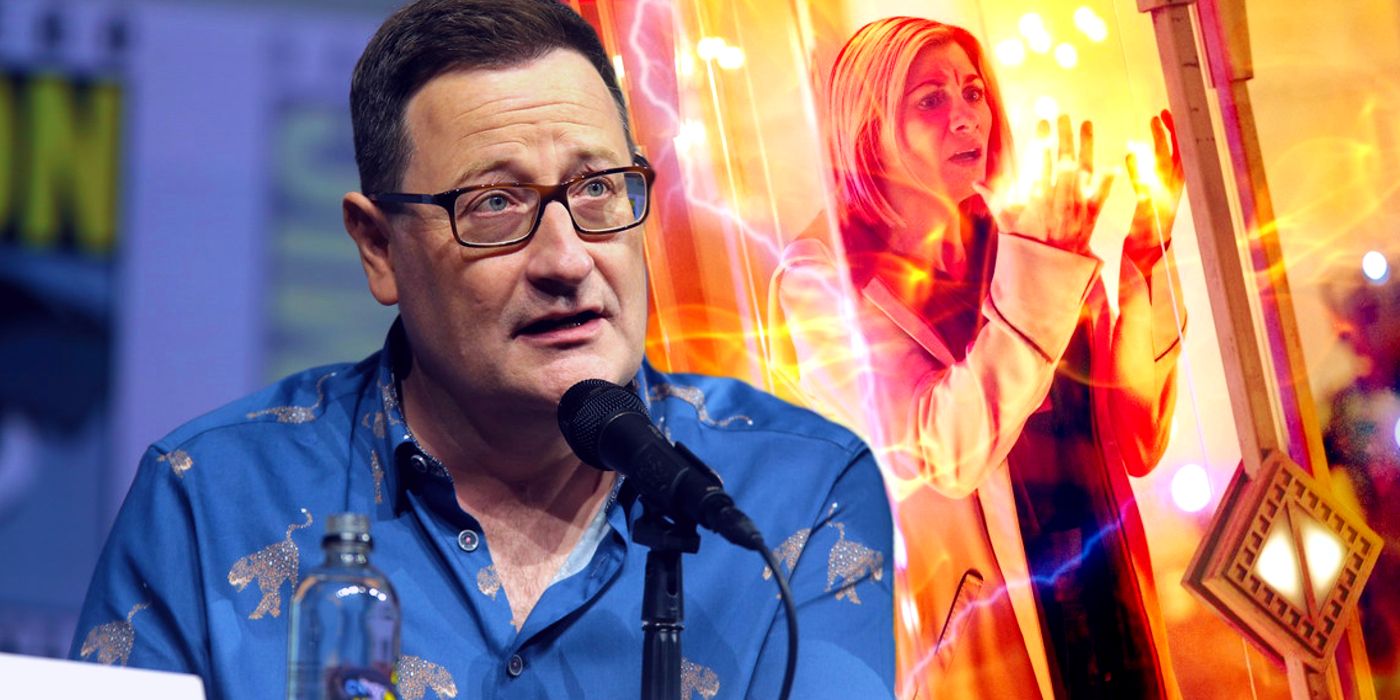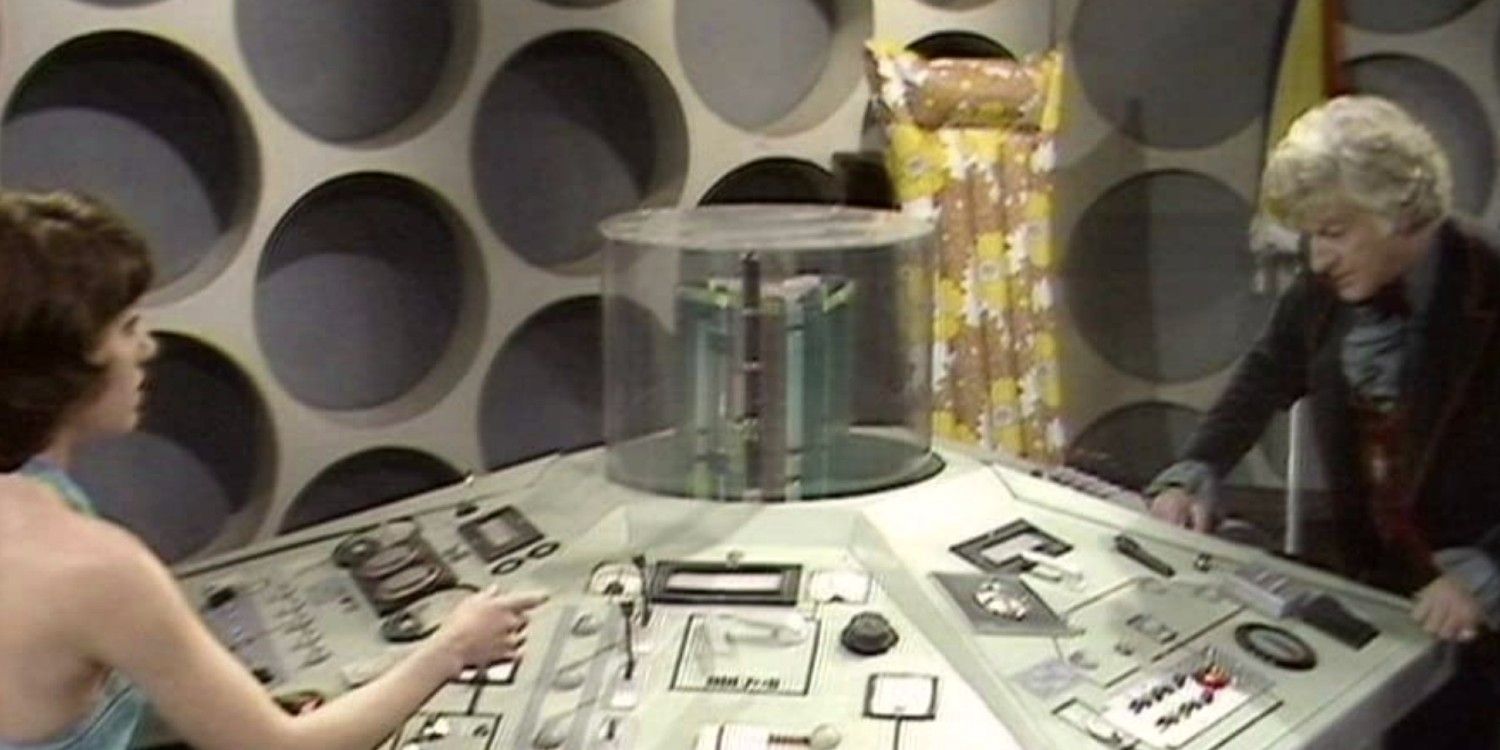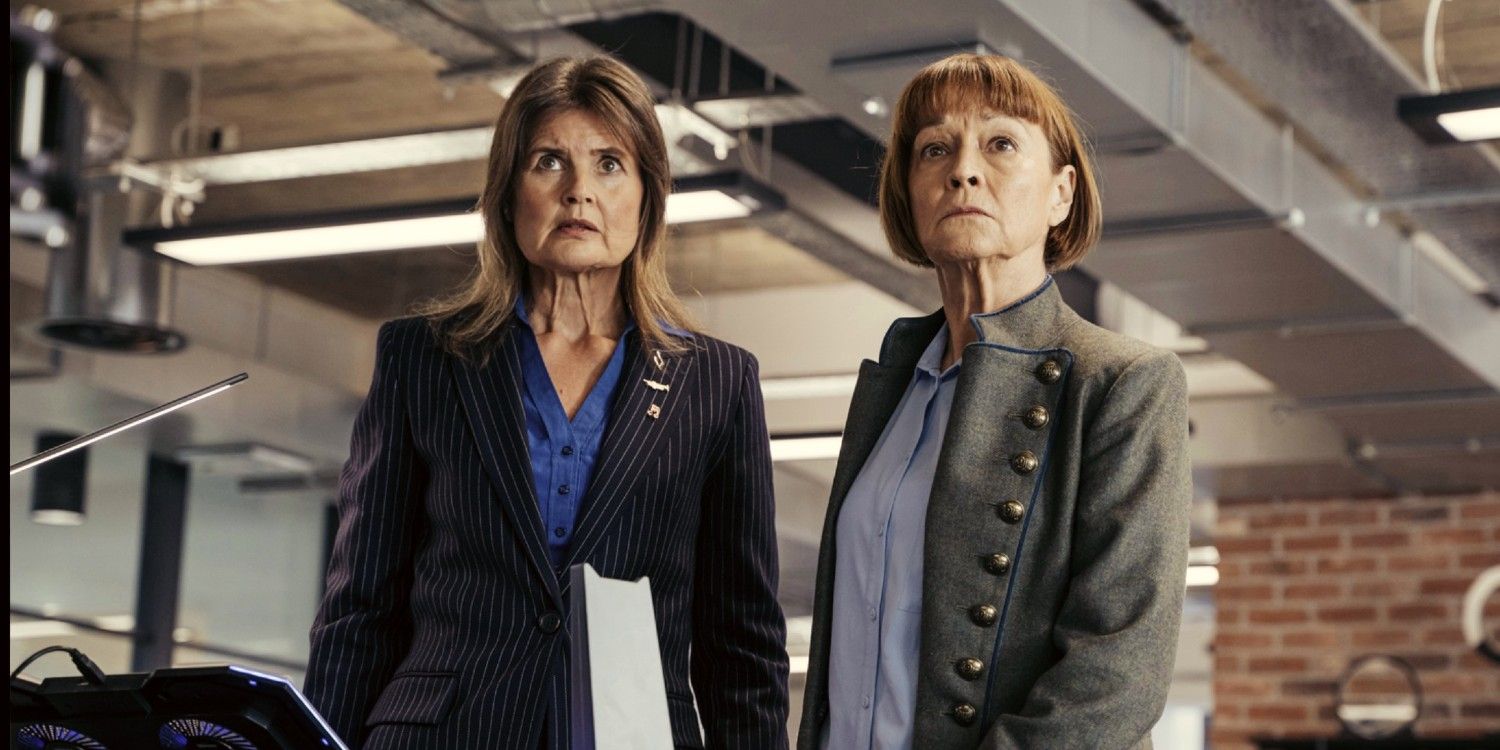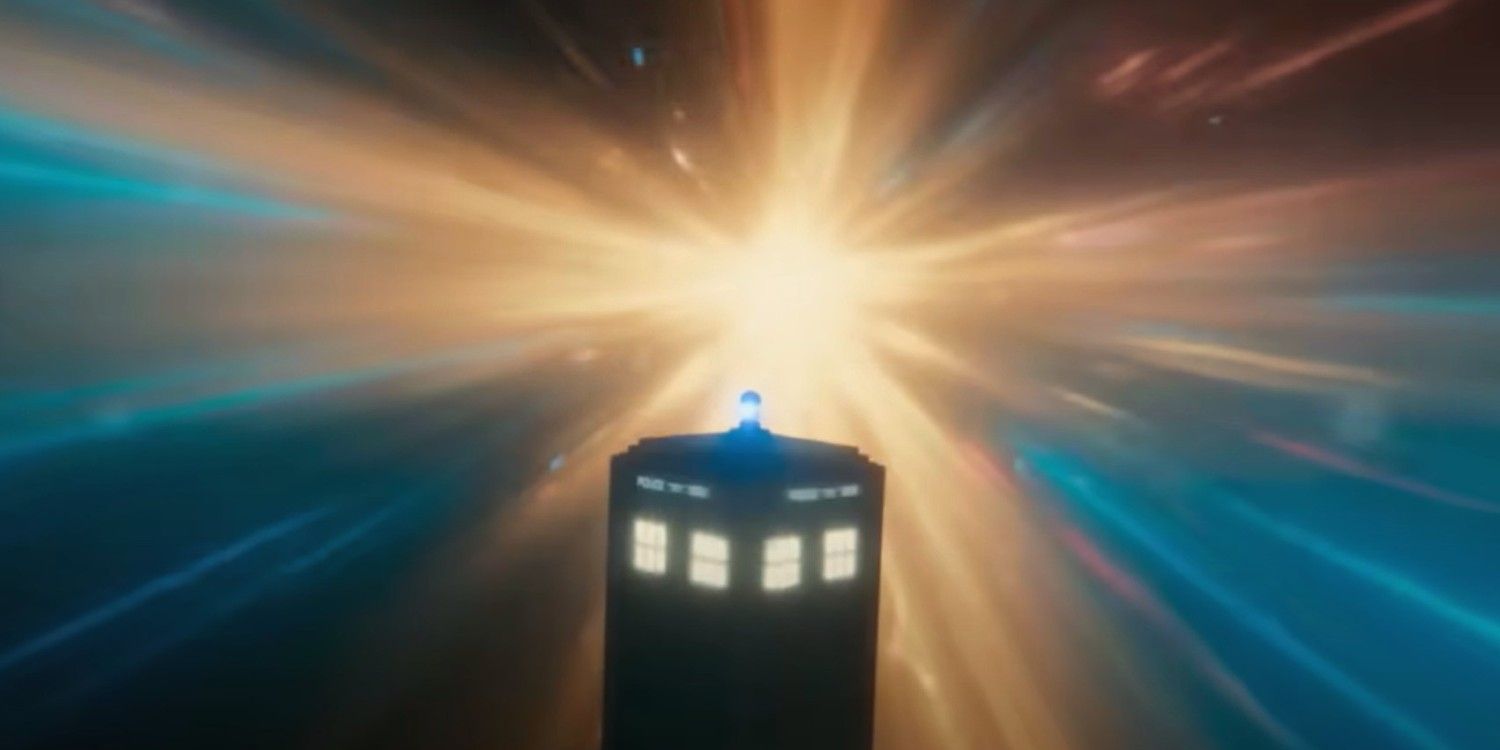Warning! SPOILERS for The Power of the Doctor!
Another era of Doctor Who has come to an end, with the latest special, "The Power of the Doctor," depicting showrunner Chris Chibnall’s greatest flaw during his time as the steward of the TARDIS. While Chibnall’s iteration of Doctor Who has given the show many strong episodes and performances from both the Thirteenth Doctor (Jodie Whittaker) and her companions, his era has also been polarizing for fans. The strong reactions to the Thirteenth Doctor’s series can be boiled down to the plot structure of Chibnall’s era, which often included a flaw that was on full display in The Power of the Doctor.
None can contest that Chibnall is a long-time Doctor Who fan and that his decisions for the show came from a place of passion and interest, as he once appeared on TV as a representative of the Doctor Who Appreciation Society. However, Chibnall's fan status of Doctor Who became one of his greatest flaws while at the helm of the series, as it tied Chibnall more strongly to classic Doctor Who than the new seasons, hobbling his ability to adapt to the 2005 relaunch. The showrunner’s nostalgia for the older version of the show added to the dissonance some viewers felt while watching the Thirteenth Doctor’s era and "The Power of the Doctor," as it felt disconnected from recent developments.
Chris Chibnall's Doctor Who Has Been Shaped Too Much By Classic Who
One of the biggest plot elements of Chibnall’s contribution to Doctor Who canon is the Timeless Child, a plot element that reveals that the Doctor is actually from another universe whose infinite regenerations are the template for Time Lord society. But this story element was shaped by classic Doctor Who when episodes from the Fourth Doctor (Tom Baker) and the Seventh Doctor’s (Sylvester McCoy) eras planted the seeds of the Timeless Child, suggesting that the classic first Doctor was not the character's first face in canon and that there was more to the character overall. However, these elements don’t work as well with the emotional direction taken by the new series. In the newer seasons, the Doctor’s magnetism and mystery come from their actions and personality, such as how the Doctor’s title of “The Oncoming Storm” stems from his actions in the Time War and the loss of his home planet, with his further adventures adding to that reputation. Older Doctor Who’s lore detracts from this new direction, making Chibnall’s references to it feel discordant.
The Power Of The Doctor Focuses On Nostalgia For Classic Doctor Who
Chibnall’s penchant for classic Doctor Who nostalgia is very visible in "The Power of the Doctor," to the special’s detriment. From the many, many cameos from former characters, including not just old Doctors but previous companions such as Ace (Sophie Aldred), Jo Jones (Katy Manning), and Ian Chesterton (William Russell), Chibnall’s reverence for classic Doctor Who is evident. Even with the Thirteenth Doctor’s finale acting as the centennial episode of the show, the overabundance of callbacks to the older cast largely outshines Doctor Who’s present, making the special a celebration of the show as it was instead of a celebration of the story in its entirety.
This bias towards older generations of the show is telling in that there were no cameos from 2005-onward Doctors until David Tennant’s appearance at the very end, giving the newer iteration of the show far less weight in the special. Additionally, "The Power of the Doctor" did not provide the same gravitas to story decisions made by earlier seasons of the new show, as it focused more on calling back classic villains than developing the consequences of recent Doctor Who events, such as the Doctor’s name. Ultimately, these casting and story decisions made the Thirteenth Doctor’s final performance less about her and the rebirth of the show, but about honoring the show’s past. It pulled attention and screentime away from the story that should have fully tied up Whittaker’s time as the Doctor, further elevating classic Doctor Who over the recent seasons.
Chris Chibnall's Doctor Who Looked Backwards, Not Forwards - A Big Mistake
Furthermore, beyond the heavily nostalgic special "The Power of the Doctor," much of Chibnall’s era on Doctor Who looked backward instead of forwards, such as with the Timeless Child plot. This detracted from the Thirteenth Doctor’s potential adventures, as many of Chibnall’s episodes and the Timeless Child plot itself didn’t give Thirteen recourse to explore new elements of herself or the universe. In this case, the plot twist only recontextualized events that had already happened to her.
While it is true that Doctor Who has always reused monsters, villains, and characters of its past in current episodes, such as the constant recurrence of Cybermen, Daleks, the Master (Sacha Dhawan), and Weeping Angels. This is a charming feature of the show instead of a detractor, adding continuity to the story that might otherwise struggle with an ever-rotating cast for its main character and decades of lore. But for these elements not to become stale and overused, Doctor Who must always add new monsters and plot points, like the original introduction of the Weeping Angels or the Time War, to rejuvenate the show. But Doctor Who under Chibnall was always looking at the past series to direct its plots going forward, even though the two eras are very different thematically. This distracted from his episodes and Doctor and failed to provide a strong angle for future seasons to build on that doesn’t actively work against the newer actors and additions to Doctor Who.
Unfortunately, although Chibnall’s love of Doctor Who is clear in his reverence for older canon, this nostalgia made his contributions to the Thirteenth Doctor’s era on the show lack some luster. With "The Power of the Doctor" overshadowing the current Doctor with past characters and the Timeless Child constantly referring back to previous seasons as well, Chibnall’s series limited the potential of what the Thirteenth Doctor could explore, stopping her from breaking truly new ground. Given Jodie Whittaker's status as the first female Doctor, this failure to be genuinely innovative is perhaps doubly disappointing. As such, Chibnall's approach left little that was truly unique to distinguish the Thirteenth Doctor from her peers, exhibiting how the showrunner's nostalgia for previous regenerations became his greatest flaw during his direction of Doctor Who.




